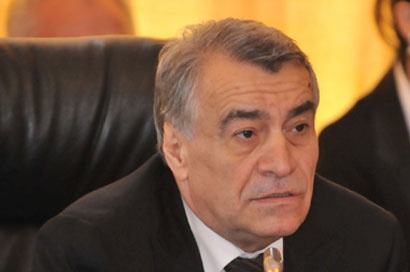Energy minister: Oil prices may go higher in 2017

By Nigar Abbasova
A highly- anticipated revival of the oil market remains heavily dependent on a number of factors, including a successful implementation of a landmark deal between OPEC and some players outside the cartel, as well as the situation in the global economy.
Energy Minister of Azerbaijan Natig Aliyev said that oil prices may rise if the global economy experiences high growth rates in 2017.
Aliyev, talking to Trend, said that measures taken within the framework of the OPEC meetings led to an increase in oil prices and the implementation of the deal will continue to have its effect in the future. However, the measures are not expected to result in a huge jump in prices.
“It’s not worth expecting a big effect. We believe that the decisions to be made at the next meeting will contribute to the rise in oil prices up to $60,” he added.
Oil markets appear to be moving toward rebalancing after a two-year collapse, with oil prices currently standing at a ranging level of $50-55 per barrel.
Aliyev believes that much will depend on the growth rates of the global economy. “The prices may increase even further, should we observe sharp improvement and high growth rates in the global economy,” he said.
The growth rate of global GDP in real terms will amount to 2.5-3 percent in 2017, according to the report of the Pacific Investment Management Co. LLC (PIMCO), while Fitch international ratings agency expects a 2.9 percent global economic growth in 2017.
Analysts of the International Monetary Fund (IMF) said that the global economic growth will amount to 3.4 percent in 2017.
The production cuts, agreed on in late November by OPEC and finalized in December by several major non-cartel producers, kicked in on January 1.
OPEC members promised to abide on a voluntary basis by the production ceiling of 32.5 million barrels per day, which was preliminary agreed in Algiers in September. This is a 1.2-million barrel per day production cut. Russia agreed to cut its production by 300,000 barrels a day, while Mexico, Azerbaijan and Kazakhstan are reducing oil output by 100,000, 35,000 and 20,000 barrels per day respectively.
The collective non-OPEC pledge is a 558,000 barrels per day cut.
--
Nigar Abbasova is AzerNews’ staff journalist, follow her on Twitter: @nigyar_abbasova
Follow us on Twitter @AzerNewsAz
